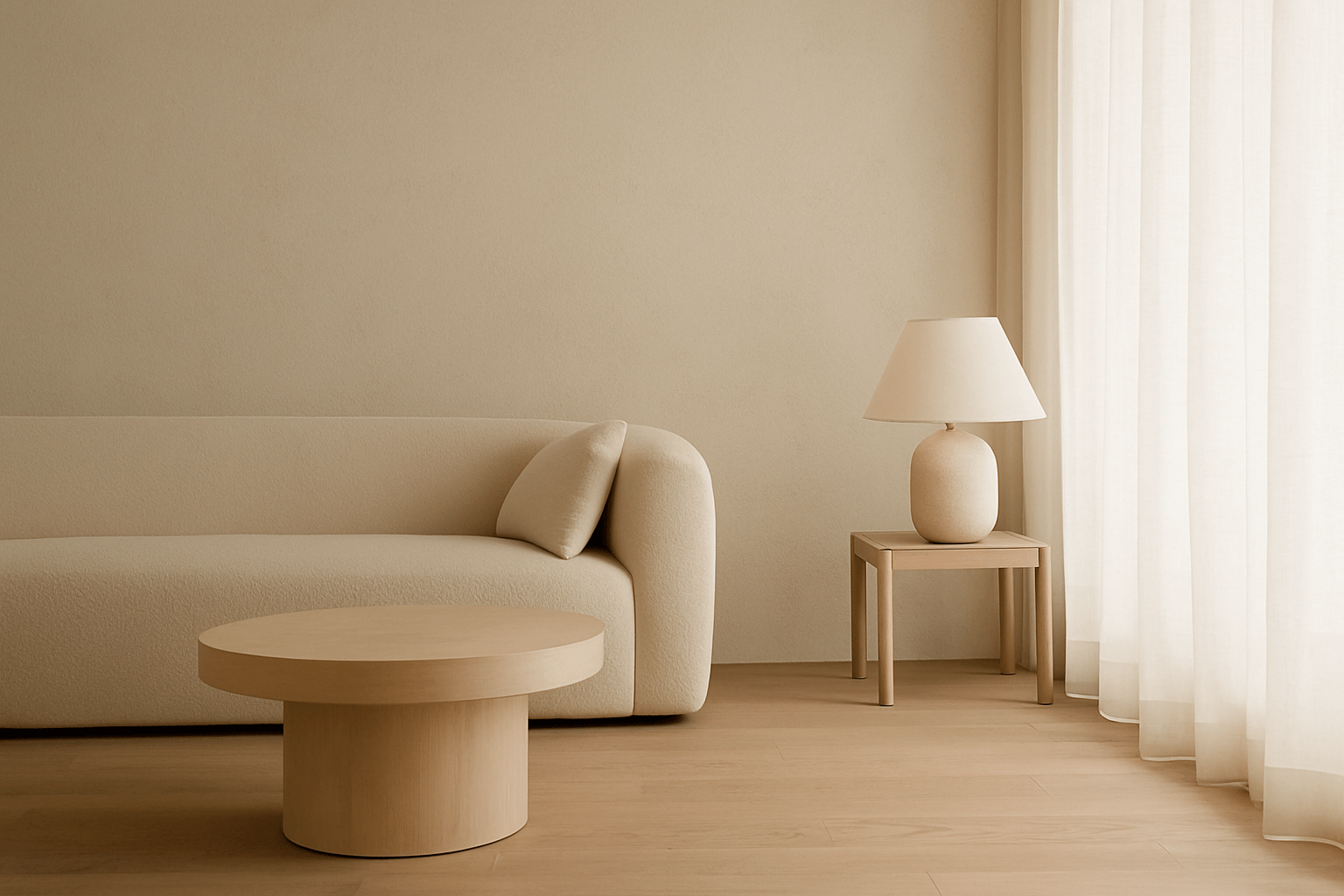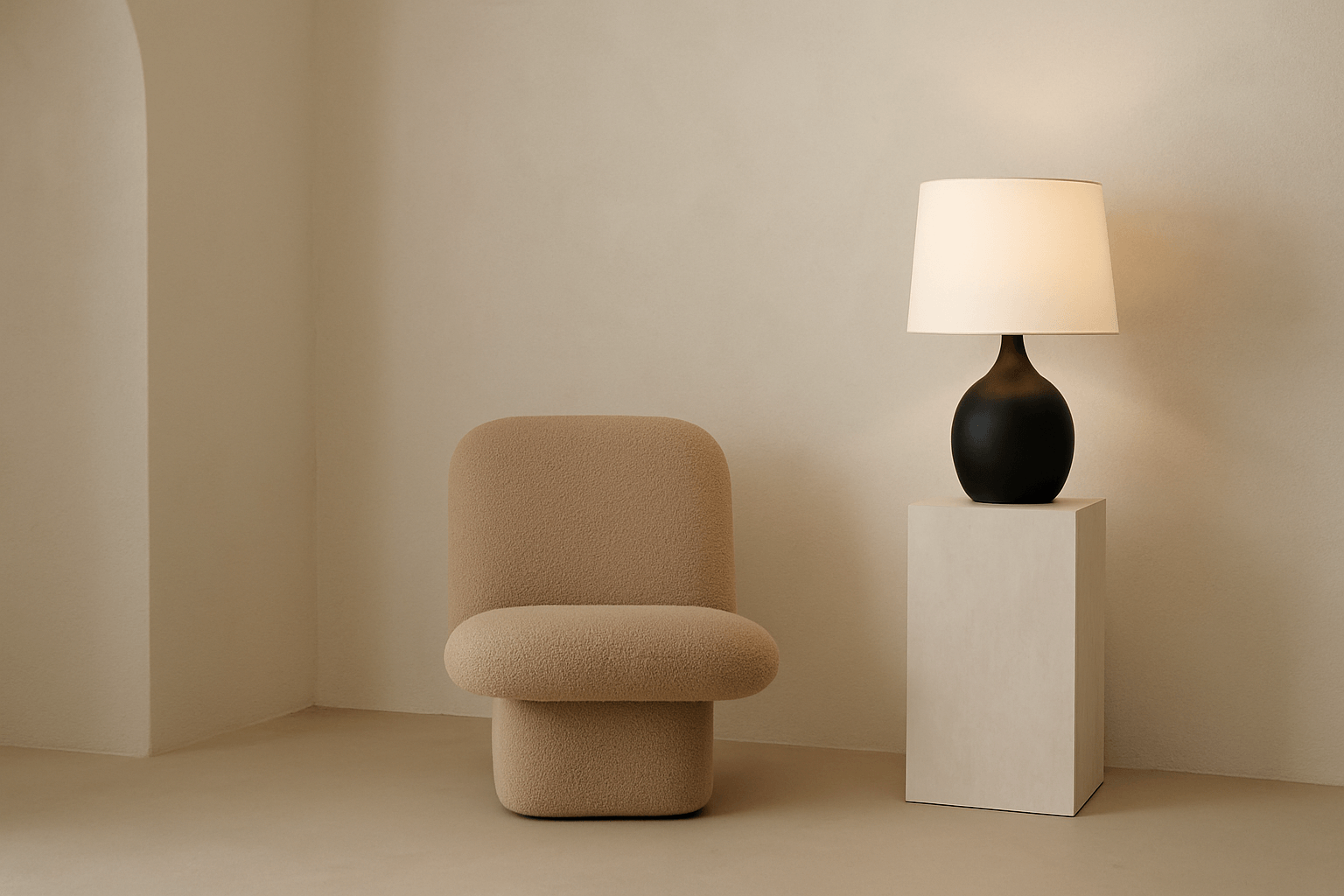Why Proportion Matters More Than Quantity
Minimalism is often associated with “less”—fewer items, fewer colors, fewer distractions. But what makes a minimalist space feel right isn’t how little it has—it’s how well everything fits together.
That harmony comes from proportion.
Proportion is the relationship between shapes, sizes, and spacing. When it’s off, a space feels awkward. When it’s right, it feels effortlessly calm—even if you can’t say why.
What Does Proportion Look Like in a Minimalist Room?
-
A sofa that doesn’t overwhelm the wall behind it
-
A lamp that feels like a natural extension of the surface it rests on
-
Artwork that doesn’t fight with furniture
-
A rug that grounds the space without swallowing it
In minimalism, the space around objects is just as important as the objects themselves.
How to Work With Proportion in a Minimalist Space
1. Think in Scale, Not Just Size
A large room doesn’t always need large furniture—but it does need balance. One oversized object can ground a space; the rest can be light and open.
2. Let Every Piece Relate to Another
Choose objects that feel like they’re in dialogue—similar lines, curves, textures, or spacing. Even contrast can feel proportional if it’s intentional.
3. Give Each Object Room to Breathe
Avoid crowding. Leave negative space around your furniture and decor. This makes even small rooms feel more spacious.
4. Match Lightness and Weight
Pair heavier, grounded pieces (like stone or wood) with visually lighter ones (like linen or glass). Balance solidity with softness.
5. Trust Your Eye, Not Just Measurements
Sometimes you’ll sense something is “off,” even if the numbers say it fits. Let your intuition guide adjustments.
Common Proportional Mistakes
-
Artwork that’s too small above a large sofa
-
Rugs that don’t reach under surrounding furniture
-
Oversized lighting in a tight space
-
Too many small items making a shelf feel cluttered
Minimalism doesn’t mean everything must match—but it does mean everything should feel considered.
Final Thoughts
Proportion is what makes a minimalist space feel quiet, intentional, and whole. It’s not just about design—it’s about how a room moves, how it breathes, and how it holds you.
When everything feels like it’s in the right place and scale, minimalism becomes more than a style. It becomes a rhythm.
















